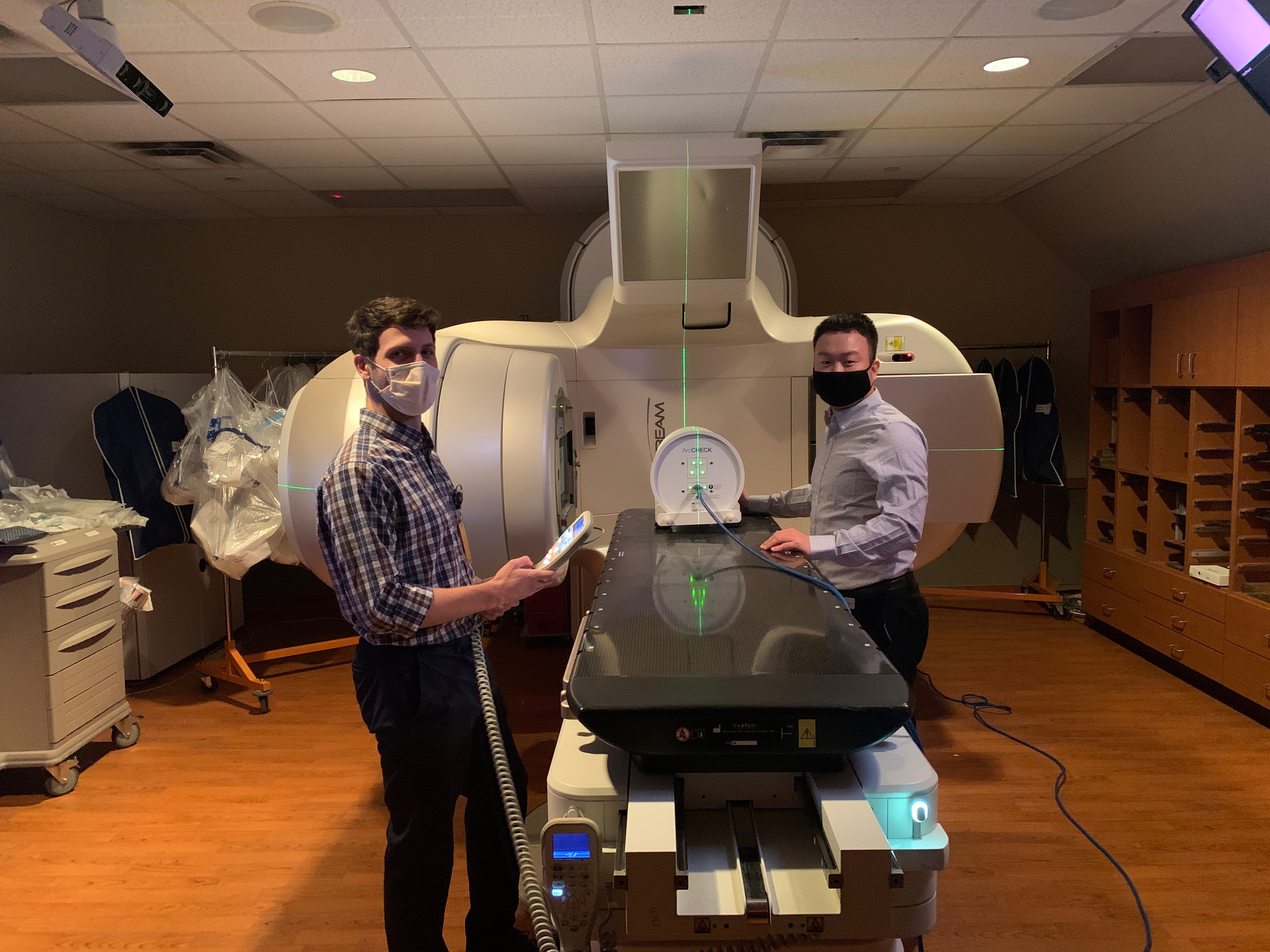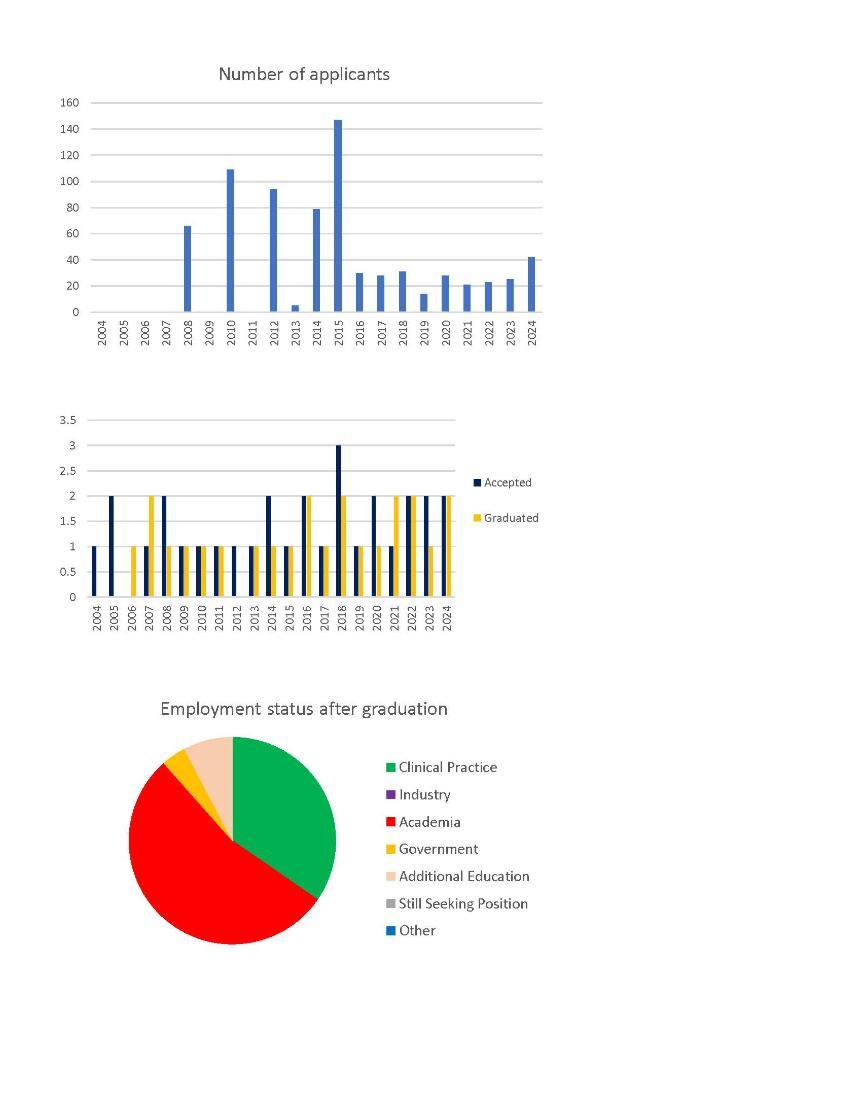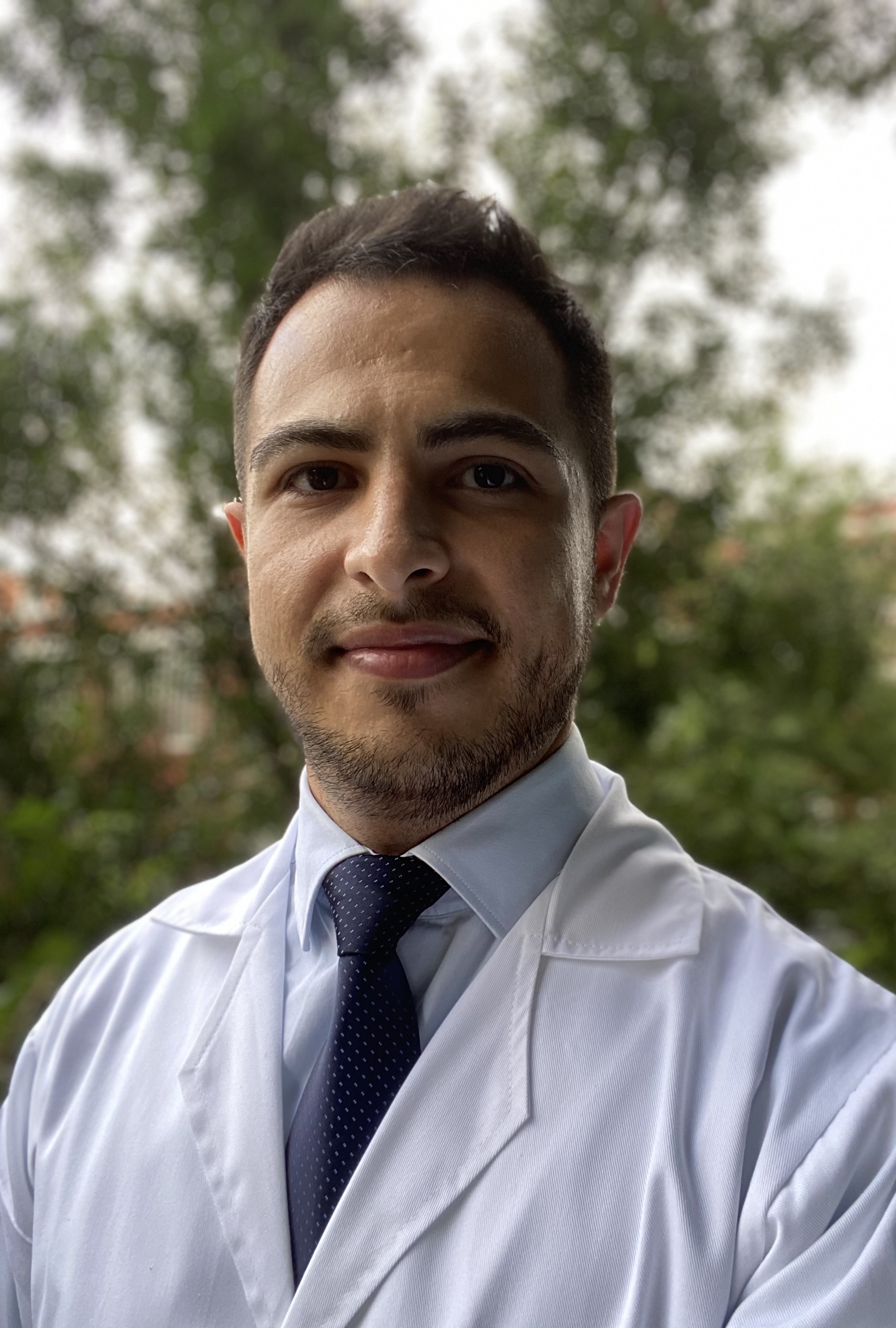Overview
We offer a two-year medical physics residency program in the Department of Radiation Oncology at VCU Massey Cancer Center. The objective of the program is to provide clinical training in all aspects of radiation oncology physics and prepare the resident for board certification. Our residents work alongside medical physicists, radiation oncologists, and supporting staff to deliver optimal care to all our patients.
Mission
Our mission is to provide clinical and didactic training to prepare our residents for practice in all aspects of therapeutic medical physics.
The medical physics residency program:
- Prepares residents to practice clinical medical physics with expertise in various treatment and imaging modalities important in radiation oncology
- Imbues residents with technical knowledge, skills, and competencies required for safe application of technologies.
- Develops analytical and critical thinking skills to research and develop solutions to problems in a clinical setting.
Medical Physics Residency Program (Therapy)
The Department of Radiation Oncology works in collaboration with the Departments of Radiology and Physics to operate an active medical physics graduate program.
We offer a two-year medical physics residency program in the Department of Radiation Oncology at VCU Massey Cancer Center. The objective of the program is to provide clinical training in all aspects of radiation oncology physics and prepare the resident for board certification. While we encourage residents to participate in research throughout their training period, this curriculum is primarily clinical.
The residency program is currently structured to meet the requirements for accreditation and has been accredited by the Commission on Accreditation of Medical Physics Education Programs (CAMPEP).
Incoming medical physics residents will join a team that includes faculty medical physicists, dosimetrists, research and clinical trainees and two to three other medical physics residents.
Curriculum
Residents will complete eight core rotations that cover all aspects of therapeutic medical physics. The rotations include work in the following:

- CT and MRI Simulation
- 3D and IMRT/VMAT Treatment Planning
- Stereotactic Body Radiotherapy (SBRT)
- Stereotactic Radiosurgery (SRS)
- HDR Brachytherapy for prostate and gynecological malignancies
- HDR Brachytherapy for breast, skin, and soft-skin sarcoma malignancies
- LDR Brachytherapy for prostate and pancreatic cancer
- Total Body Irradiation
- Total Skin Electron Therapy
- MRI Guided Radiation Therapy
- Commissioning and QA
- Shielding, Radiation Safety, and Regulatory Compliance
Admission Information
Candidates from either a CAMPEP-accredited M.S. or Ph.D. graduate program, or a CAMPEP-accredited Certificate program are welcome to apply.
Residents entering a medical physics residency educational program shall have a strong foundation in basic physics. This shall be demonstrated either by an undergraduate or graduate degree in physics, or by a degree in an engineering discipline or another of the physical sciences and with coursework that is the equivalent of a minor in physics (i.e., one that includes at least three upper-level undergraduate physics courses that would be required for a physics major).
In addition, residents must either 1) have graduated from a CAMPEP-accredited MS or PhD graduate program, or 2) possess a PhD in physics or related discipline and have completed a CAMPEP-accredited certificate program. This is consistent with the standards set forth by CAMPEP. Further details, including their latest policies, can be found at the CAMPEP website.
To apply, download and fill out the application below. Submit the completed application along with your CV, a personal statement, 3 recommendation letters, and transcripts via email to medphys@vcu.edu. Recommendation letters should be emailed directly from your recommender.
2025 VCU Medical Physics Residency Program Application
Timeline
Applications for the residency cycle starting July 1st 2025 (1 position) will be accepted between August 15, 2024 – September 15, 2024.
Applicants must be authorized to work lawfully in the United States. At this time, our Department is not sponsoring individuals for immigration benefits for this position.
Virginia Commonwealth University and VCU Health are equal opportunity/affirmative action institutions providing access to education and employment without regard to age, race, color, national origin, gender, religion, sexual orientation, veteran's status, disability, or any other protected characteristic.
How to Apply
To apply, download and fill out the application below. Submit the completed application along with your CV, a personal statement, 3 recommendation letters, and transcripts via email to medphys@vcu.edu. Recommendation letters should be emailed directly from your recommender.
2025 Medical Physics Residency (Therapy) ApplicationOur Department
The Department of Radiation Oncology at VCU provides a full range of clinical services at the VCU Medical Center and its six satellite facilities within Virginia.
The Department of Radiation Oncology at VCU provides a full range of clinical services at the VCU Medical Center and its six satellite facilities within Virginia. Services provided include IMRT, VMAT, SBRT, image-guided brachytherapy, hyperthermia, and stereotactic radiosurgery.
Residents will rotate through modules based on simulation and set-up verification, dosimetry (3D and IMRT), SBRT, SRS, LDR brachytherapy, HDR brachytherapy, Quality assurance, and more. The curriculum is set in accordance with CAMPEP, but allows for residents to explore areas of interest. While the residency is clinical focused, residents may have the opportunity to work with faculty on projects throughout their rotations.
The physics faculty conducts research in various areas of radiation therapy including IMRT/VMAT dosimetry and optimization, brachytherapy dosimetry and applicator development, CT image reconstruction, image-guided radiation therapy, deformable image registration, 4D MRI, clinical bio-marker study, and motion-adaptive radiation.
Our Statistics

Residency Program FAQs
What compensation and benefits does the VCU Medical Physics Residency provide?
Leave and compensation for VCU residents is administered through the Office Graduate Medical Education (GME). The link to their page, with details on leave, benefits, and other policies can be found here.
What research opportunities are available to residents?
While research is not required and part of the formal curriculum, it is encouraged, and many past residents have presented on their clinical work in national and international conferences. Residents will have the opportunity to work with various faculty on clinical projects and research. Projects in the past have focused on motion-adaptive IGRT, HDR brachytherapy, surface guided imaging, and 3D printing applications for radiotherapy.
Can I apply if I have not graduated from a CAMPEP accredited program?
Yes, candidates who possess a PhD in physics or related discipline from a non-CAMPEP program, and have completed a CAMPEP-accredited Certificate program may apply.
If you have further questions regarding your eligibility, please contact medphys@vcu.edu.
Is there parking available for students and residents on campus?
Yes. VCU offers parking to both students and employees. Transportation around campus is provided free-of-charge via the RamRide and RamSafe shuttle services. Additionally, unlimited transportation around Richmond using the GRTC public transit system is available to VCU students and employees free of charge.
For the most up-to-date parking rates and transportation information, please visit the VCU Parking and Transportation site.
Where can I find more information about the Richmond (RVA) area?
If you want to know a bit about VCU, a good place to start is the main VCU website. VCU's All About Richmond page has additional details on living and studying in RVA.
Information for prospective students, ranging from the application processes to financial aid, can be found on VCU's Admissions page. VCU's Graduate School website also provides a listing of university resources and services.
For international students, the Global Education Office's website provides additional information, resources, and contacts.

Alireza Omidi, Ph.D.
Chief Resident

Alireza Omidi, Ph.D.
Chief Resident
Radiation Oncology, Division of Medical Physics
Email: alireza.omidi@vcuhealth.org

Binod Manandhar, Ph.D.
Senior Resident

Binod Manandhar, Ph.D.
Senior Resident
Radiation Oncology, Division of Medical Physics

Mojtaba Behzadipour, Ph.D.
Resident

Mojtaba Behzadipour, Ph.D.
Resident
Radiation Oncology, Division of Medical Physics

Jiayi Liu, M.S.
Resident

Jiayi Liu, M.S.
Resident
Radiation Oncology, Division of Medical Physics
Email: Jiayi.Liu@vcuhealth.org
Contacts

Mihaela Rosu-Bubulac, Ph.D.
Professor, Medical Physics Residency Director

Mihaela Rosu-Bubulac, Ph.D.
Professor, Medical Physics Residency Director
Radiation Oncology
Email: mihaela.rosu@vcuhealth.org

Lori Cates
Program Coordinator, Medical Physics Graduate Education and Residency Program

Lori Cates
Program Coordinator, Medical Physics Graduate Education and Residency Program
Radiation Oncology
Email: medphys@vcu.edu
